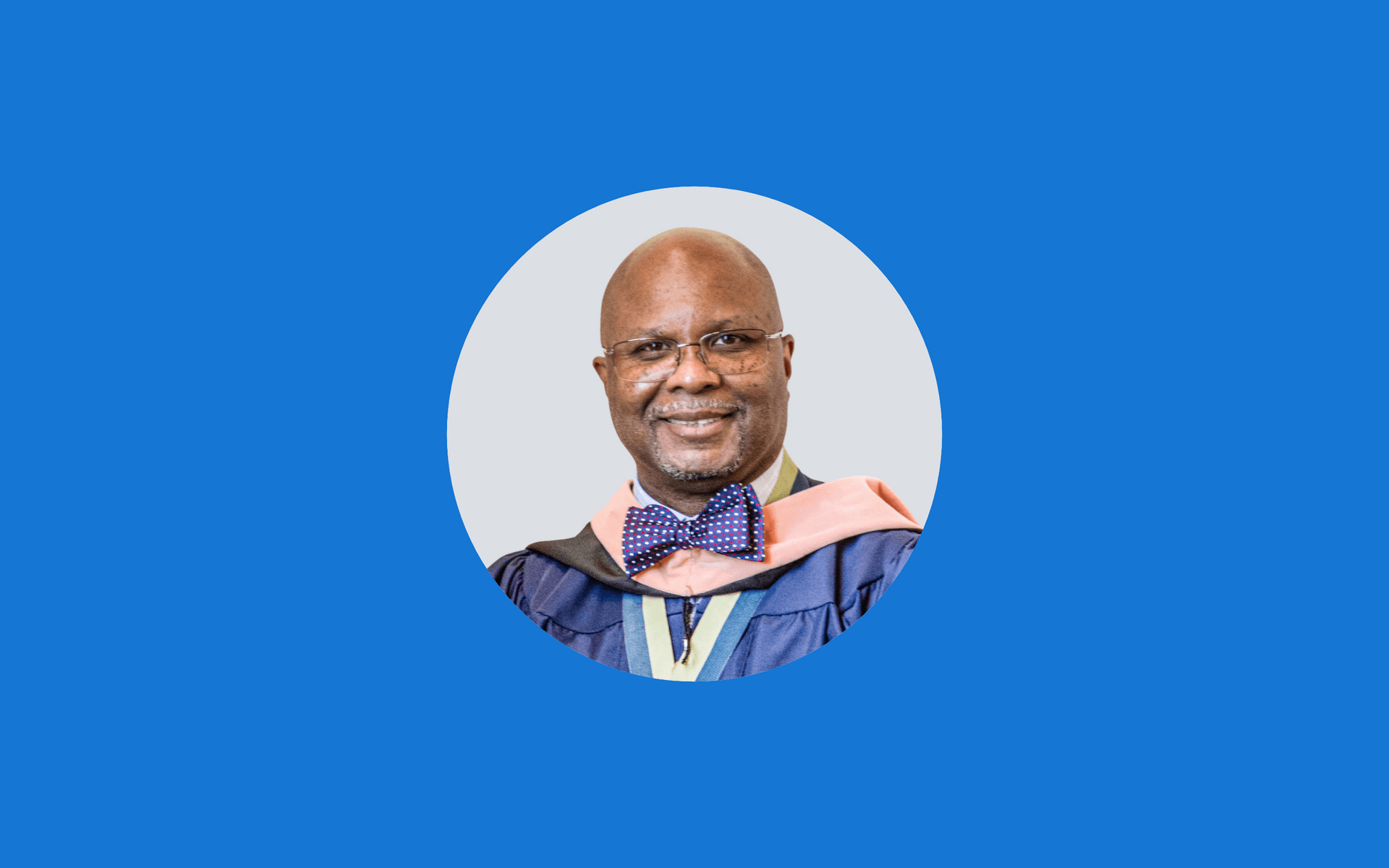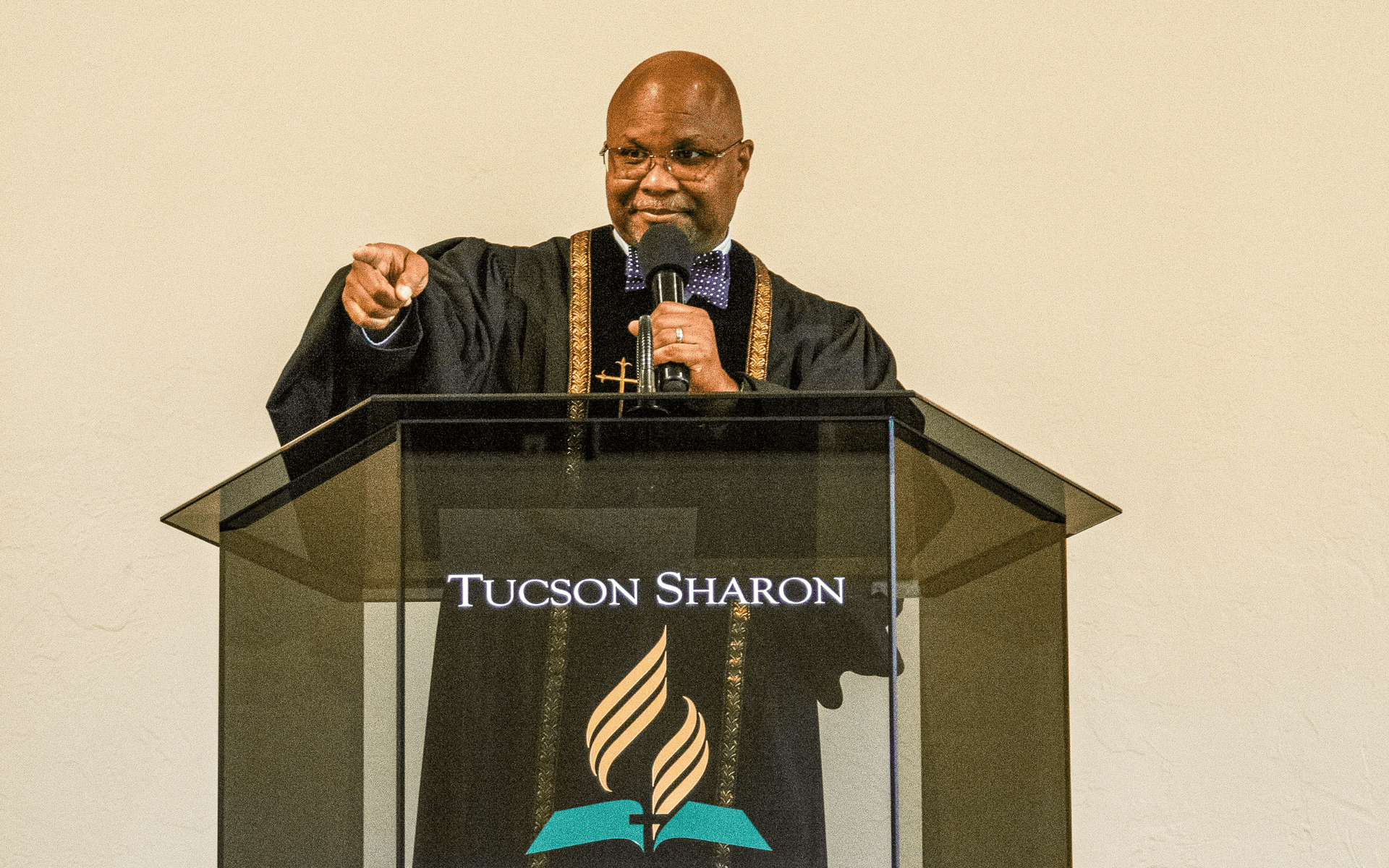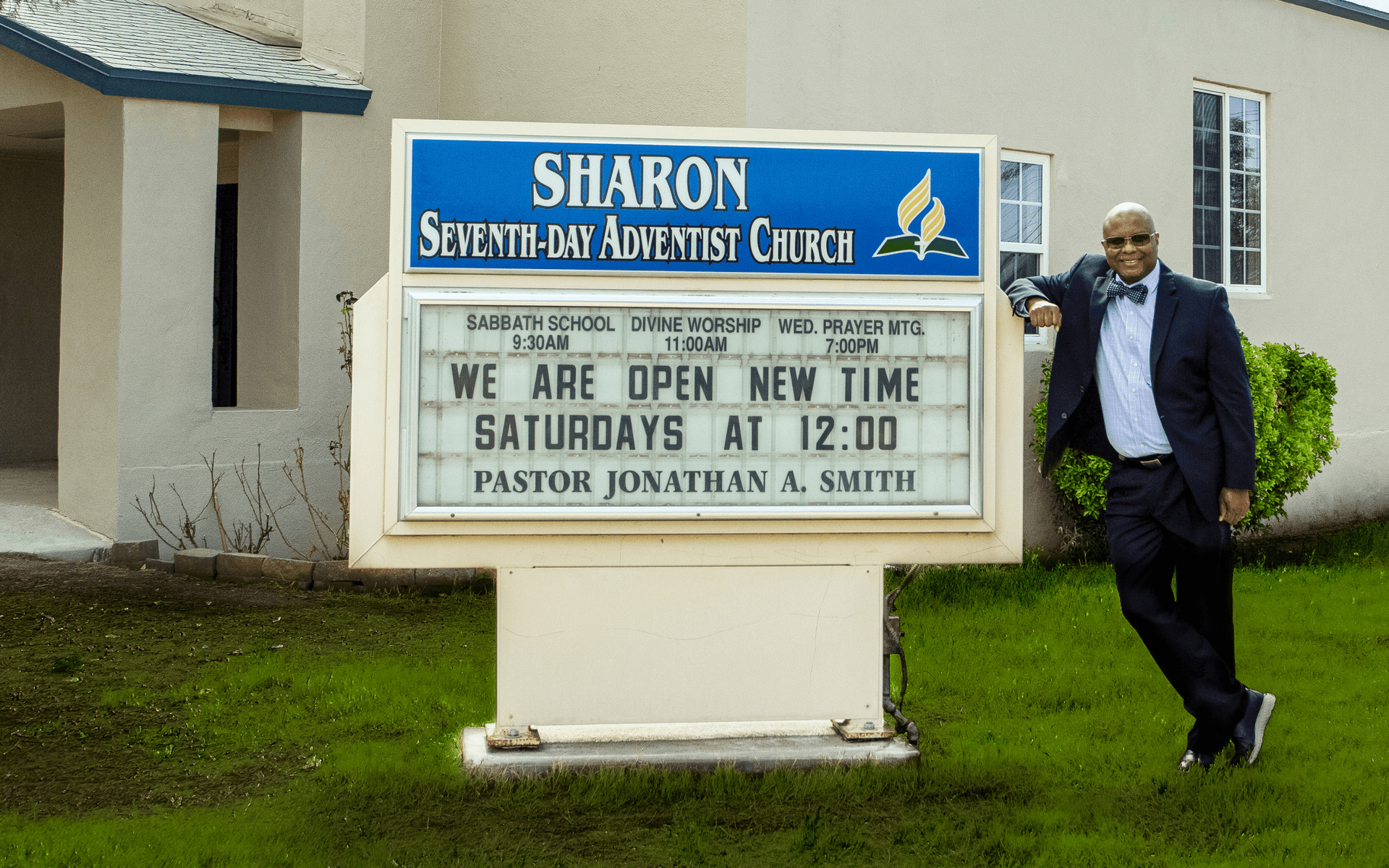Mission
Bridging Faith and Science: How a Pastor Used His Master of Public Health from George Washington University to Protect His Church During COVID-19
Written by Bannon Puckett on Apr 28, 2021
Related content: Graduate Programs

EDITOR’S NOTE: This story is part of a spotlight series on graduate alumni from 2U-powered online programs who were survey participants in our 2020 Gallup-2U Graduate Alumni Outcomes Study. The study was conducted to help 2U better understand the student experiences and career outcomes delivered by our university partners.
Kentucky was in the throes of a statewide opioid crisis—with Pastor Jonathan Smith on the front lines.
“As a chaplain, I saw people coming into church overdosed on opioids,” he recalls. But Smith is not one to stand by and watch his community suffer.
“My theology background could not address that particular issue, when a patient had overdosed,” he says. “While my training as a pastor helped me comfort people spiritually, I was totally ill-equipped to do anything about what they were experiencing physically. I knew that if I wanted my ministry to have a broader impact, I needed to go back to school and get additional training in a different field.”
Smith briefly considered completing a graduate degree in nursing. But when a mentor suggested public health as a way to treat “populations, and not just patients,” the pastor knew he had found his true calling.
Eager to expand his public service capabilities, Smith enrolled in George Washington University’s online Master of Public Health (MPH@GW) program, a 2U-powered degree program designed for public health leaders who want to safeguard the health and wellness of people across the globe.
Though Smith didn’t know it at the time, this decision would pave a direct pathway to his next leadership role: protecting hundreds of parishioners during a global pandemic.

Finding Welcome Flexibility
While evaluating different educational options, Smith had focused on a few core criteria: program duration, reputation, and flexibility.
“I wanted a program where I wouldn’t be limited based on geography and could make an immediate impact,” says Smith. With the MPH@GW master’s program, he found just that.
From Kentucky, Smith was able to complete his degree in just two years, taking live online courses with instructors at the nationally acclaimed Milken Institute School of Public Health without moving to Washington, D.C.
“Location wasn't important,” says Smith. “Students could learn from home, on the road, or anywhere they wanted. No in-person experience can replicate the flexibility that our online platform provided.”
“It Went Beyond My Wildest Dreams”
Looking back, Smith credits the MPH@GW program with preparing him for real-world public health service through a rigorous, interactive curriculum.
“The program is designed for students to participate, and boy did we participate,” he says. “Discussions with classmates were very engaging and enlightening, and the faculty did a wonderful job facilitating those conversations. It was one of those experiences where I truly looked forward to going to class every day in anticipation of learning something new.”
As a first-time online learner, Smith hadn’t known what was in store for him in the MPH@GW program. Today, he can confidently say that online education exceeded his expectations: “It went beyond my wildest dreams.”
For him, the program’s focus on community was particularly standout. “Surprisingly, I connected with many classmates in a deeper, more intimate way through online classes than I had during my previous in-person experiences at a bachelor's and graduate level,” says Smith. “Everybody was striving for excellence, and that made for a very enriching experience.”
When the pandemic hit, my parishioners had a great deal of confidence in what I had to say because of my public health background. We were the first church to close down in Arizona. That’s because I was looking at the data.— Jonathan Smith, online Master of Public Health program graduate, George Washington University
Learning to Love Data
Of course, the program didn’t come without challenges: a required biostatistics class being the biggest one.
“I’m not a quantitative person,” says Smith. “I am not a quantitative person. And by the way, did I mention I’m not a quantitative person?” Now, he’s able to reflect on the experience and laugh—but at the time, humor was far from his mind. Daunted by the prospect of data analysis, Smith wondered: How in the world am I going to get through this?
Fortunately, these fears soon vanished as Smith leaned on the support of students and faculty. Before long, he was crunching numbers with confidence. “Interestingly enough, biostatistics wound up being my favorite course,” he recalls. “I liked that you could see real-world applications of data.”
The First Church Closure in Arizona
After being called back to his home church in Tucson, Arizona, as a pastor and MPH@GW graduate, Smith was uniquely positioned to lead his congregation through this century’s greatest public health crisis.
“When the pandemic hit, my parishioners had a great deal of confidence in what I had to say because of my public health background,” says Smith. “We were the first church to close down in Arizona. That’s because I was looking at the data.”
Smith cancelled in-person service when there were only five known cases of COVID-19 in Arizona. “One week later, the governor decided to shut down all churches,” he recalls. “My members said, ‘Pastor, you’re prophetic! The governor is following your lead!’ But I told them I was simply reading and interpreting the data. There was no way I could protect all my parishioners with a highly infectious disease in the area, so I did what I had to do.”
Smith’s efforts have clearly paid off. “To date, not one member of my church has contracted COVID-19 from us being together,” he says. “Not one.”

A Marriage of Faith and Science
Many people see faith and science as contradictory forces. But for Smith, they will always go hand in hand.
“Science and faith kept all of my parishioners safe during the pandemic,” he says. “We made positive contributions to our community by staying home. When vaccinations came out, I looked at the data, ingredients, and studies, then promoted vaccinations to my congregation and community members. Science and faith are not at war with each other. Science is science. Faith is faith. They can work very well together when both are respected. When you disrespect one or the other, that's when there are problems.”
That’s not to say that marrying two diverse disciplines is easy. As Smith recalls, “I was challenged by people who said, ‘Pastor, you have faith. Don’t you believe God will protect your congregation?’ I told them, ‘Absolutely, I’m a man of faith and prayer. But I also believe in science. I know how to read data, and this is not a matter of faith. This is a matter of science.’ My faith doesn't blind me to the realities of science. I'm able to merge both disciplines, understanding the benefits of each.”
“To Whom Much Is Given, Much Is Required”
Looking back, Smith can’t imagine his life without the MPH@GW program. “Having this degree has opened so many doors and opportunities for me,” he says. “It’s helped me minister more comprehensively and made me better able to give back. That’s what I love to do.”
As the next step in his leadership journey, Smith will pursue a Ph.D. in Health Behavior and Health Promotion—an on-campus program he was just accepted into for this fall with the University of Arizona. “I want to continue promoting a healthy lifestyle that tackles health disparities to my community, and perhaps even in the classroom as a professor,” he says. “I’m really feeling called to do that.”
“To whom much is given, much is required,” Smith concludes. “I recognize the awesome responsibility that I have standing behind the pulpit, and want to use my position to be a good steward of knowledge and education.”
In hearing Smith’s story, it’s evident that he has done exactly that.
~~~
Read “Evening the Playing Field and Making a Difference: A Closer Look at Inclusive and Fulfilling Graduate Student Experiences from the 2020 Gallup-2U Study” written by David Sutphen, 2U’s chief strategy & engagement officer.
Latest.
Learn more about us.
At 2U, we’re on a mission—to eliminate the back row in higher education and help universities thrive in the digital age. To learn more about who we are and what we do, follow the links below.